Bio-Ethics Case Study: Ethical Considerations in Euthanasia Scenario
VerifiedAdded on 2022/11/27
|11
|891
|447
Case Study
AI Summary
This case study examines the ethical dilemma surrounding a 79-year-old woman, T.G., facing multiple health complications, including a recent stroke and kidney failure requiring dialysis. After undergoing two dialysis sessions, T.G. refuses further treatment and expresses her desire to die, prompting an analysis of bio-ethical principles. The study explores the application of the four bio-ethics: beneficence, non-maleficence, autonomy, and justice, emphasizing T.G.'s right to self-determination (autonomy) and the principle of non-maleficence, which argues against imposing unnecessary pain and suffering. Considering T.G.'s age, health conditions, and the pain associated with dialysis, the study supports her decision based on the ethics of autonomy and non-maleficence, aligning with the concept of informed consent. The analysis also references the legal context of euthanasia, suggesting that T.G.'s wish to discontinue life-saving treatment is justifiable within the framework of end-of-life care. The conclusion emphasizes the importance of respecting patient autonomy and minimizing suffering in medical decision-making, referencing relevant guidelines and literature.
1 out of 11
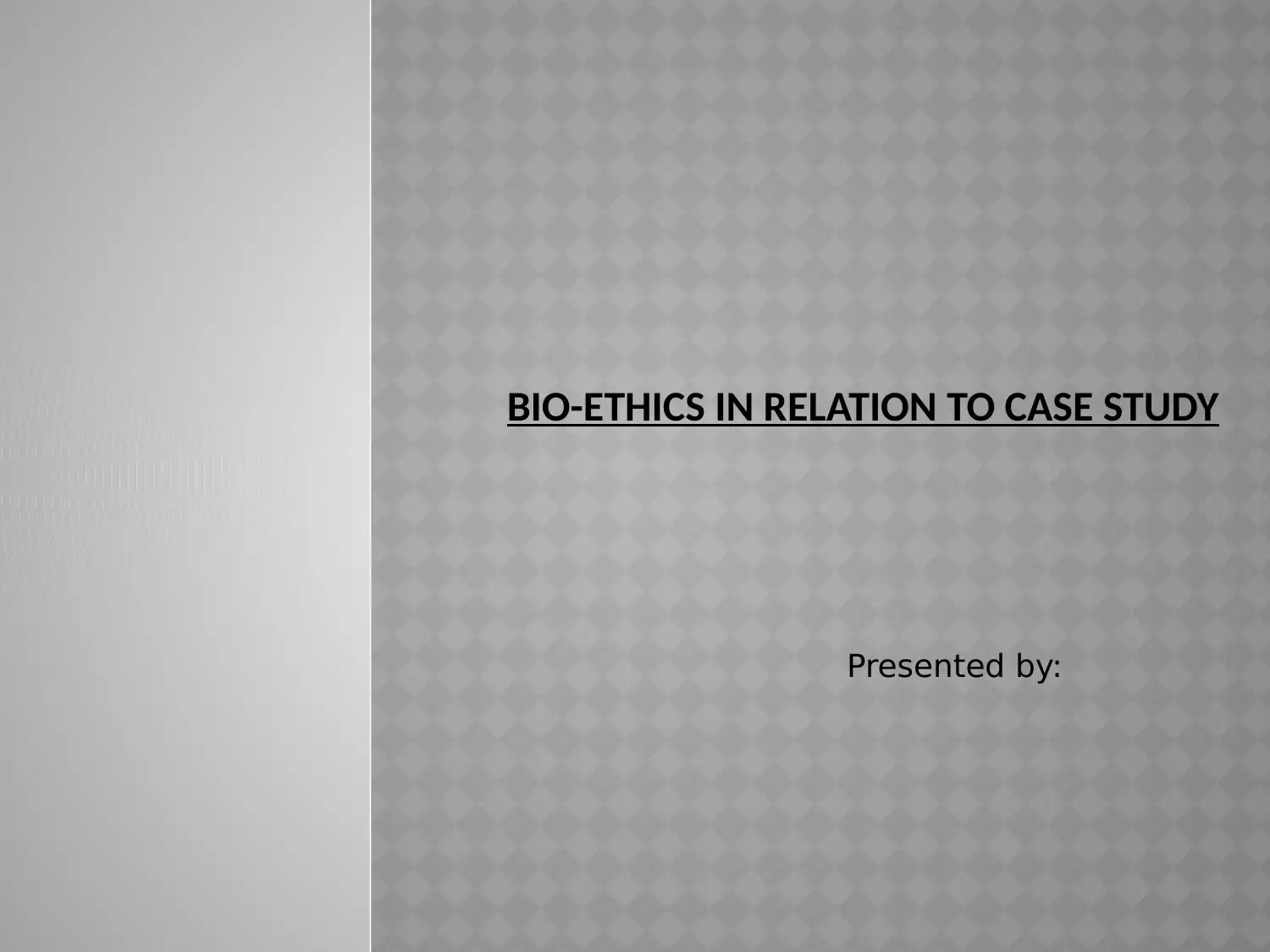
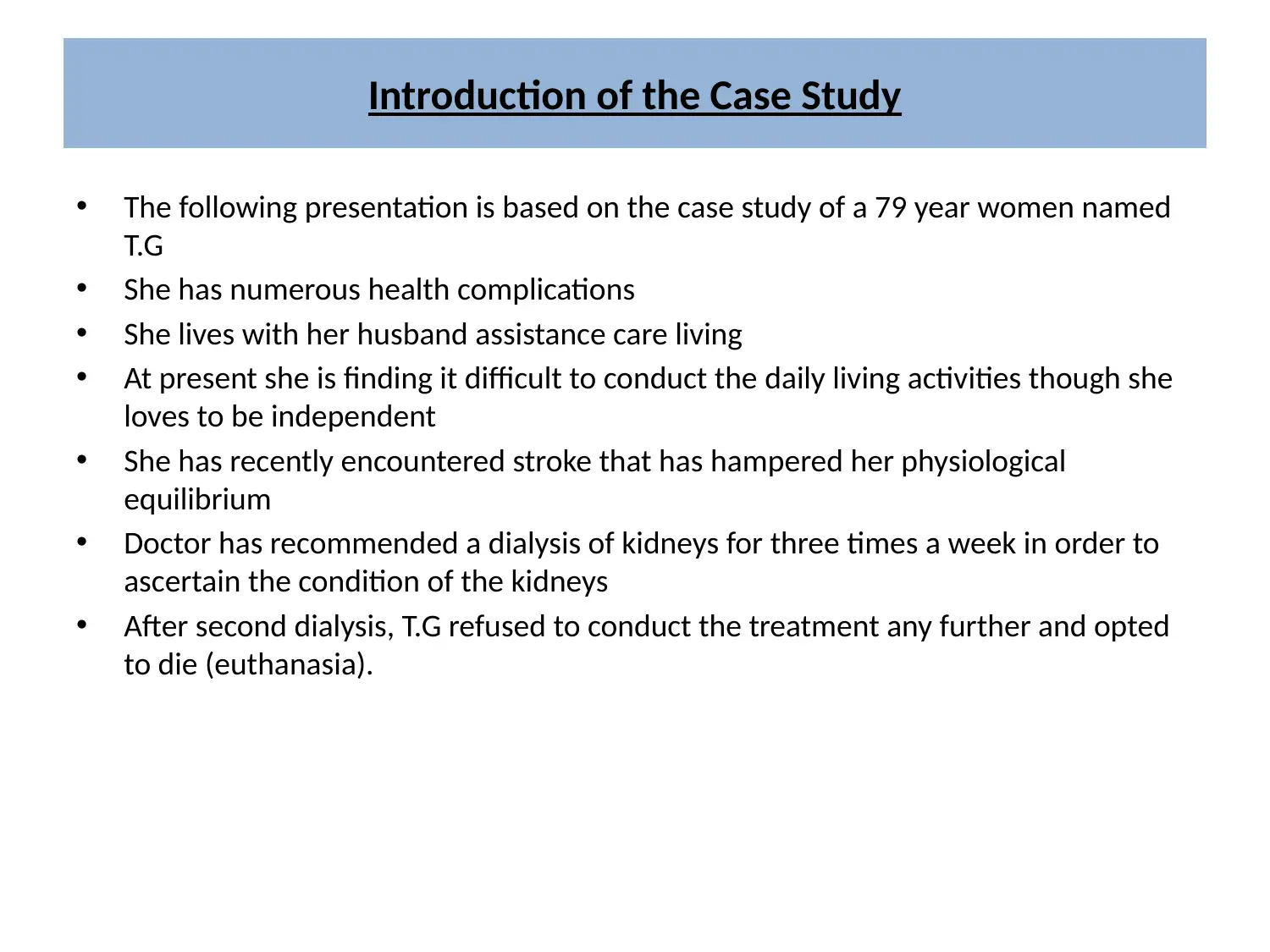
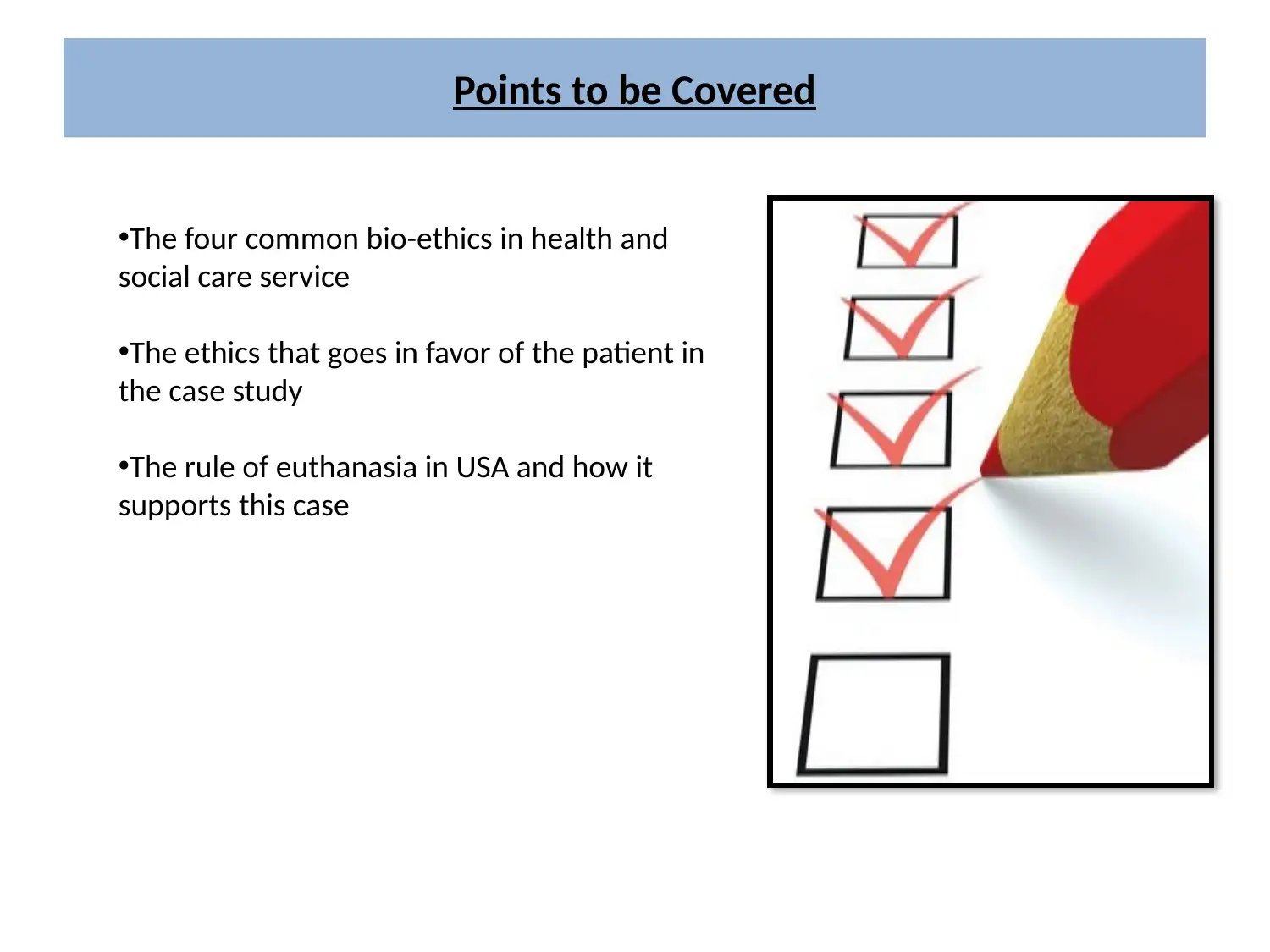

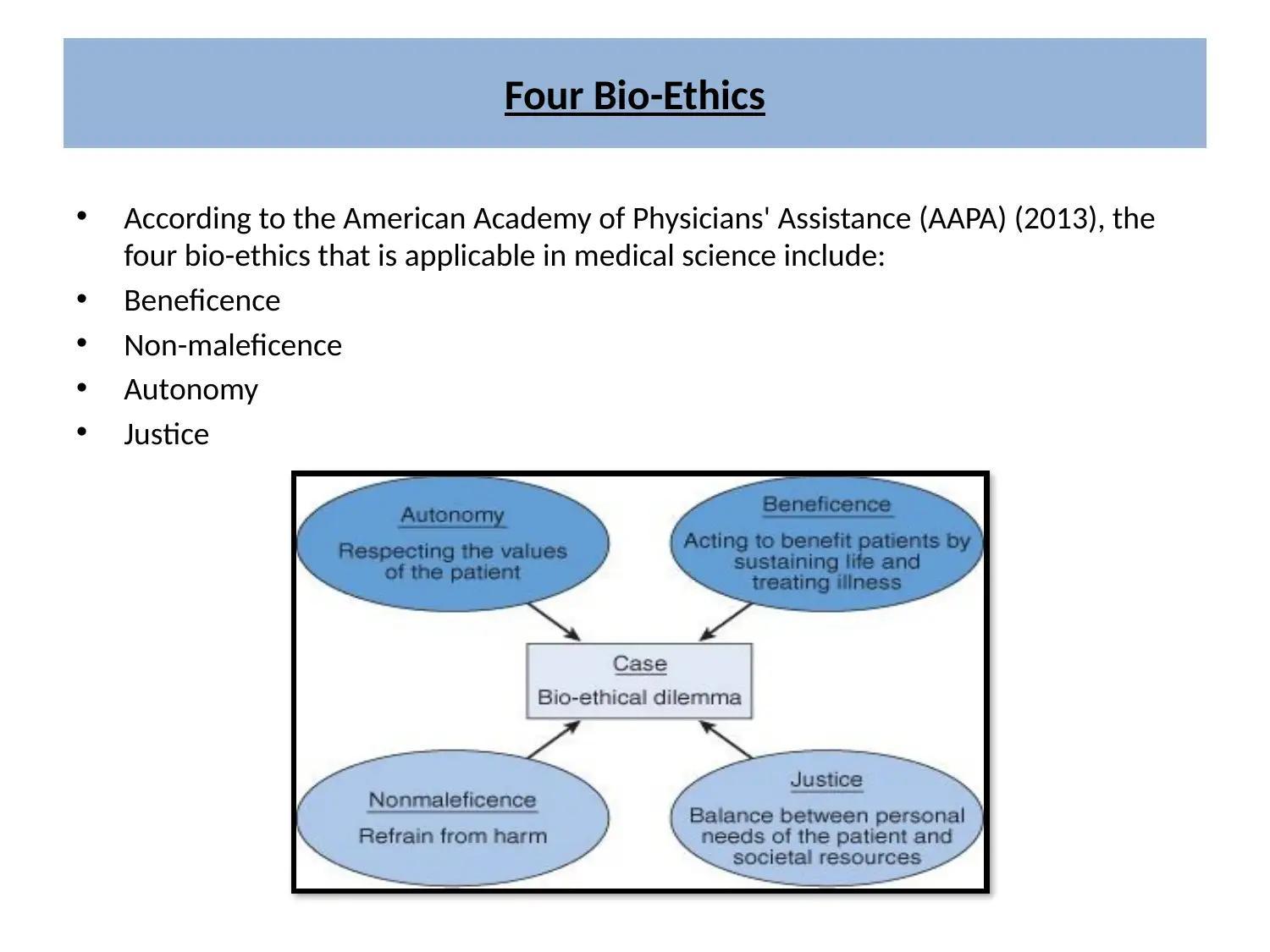
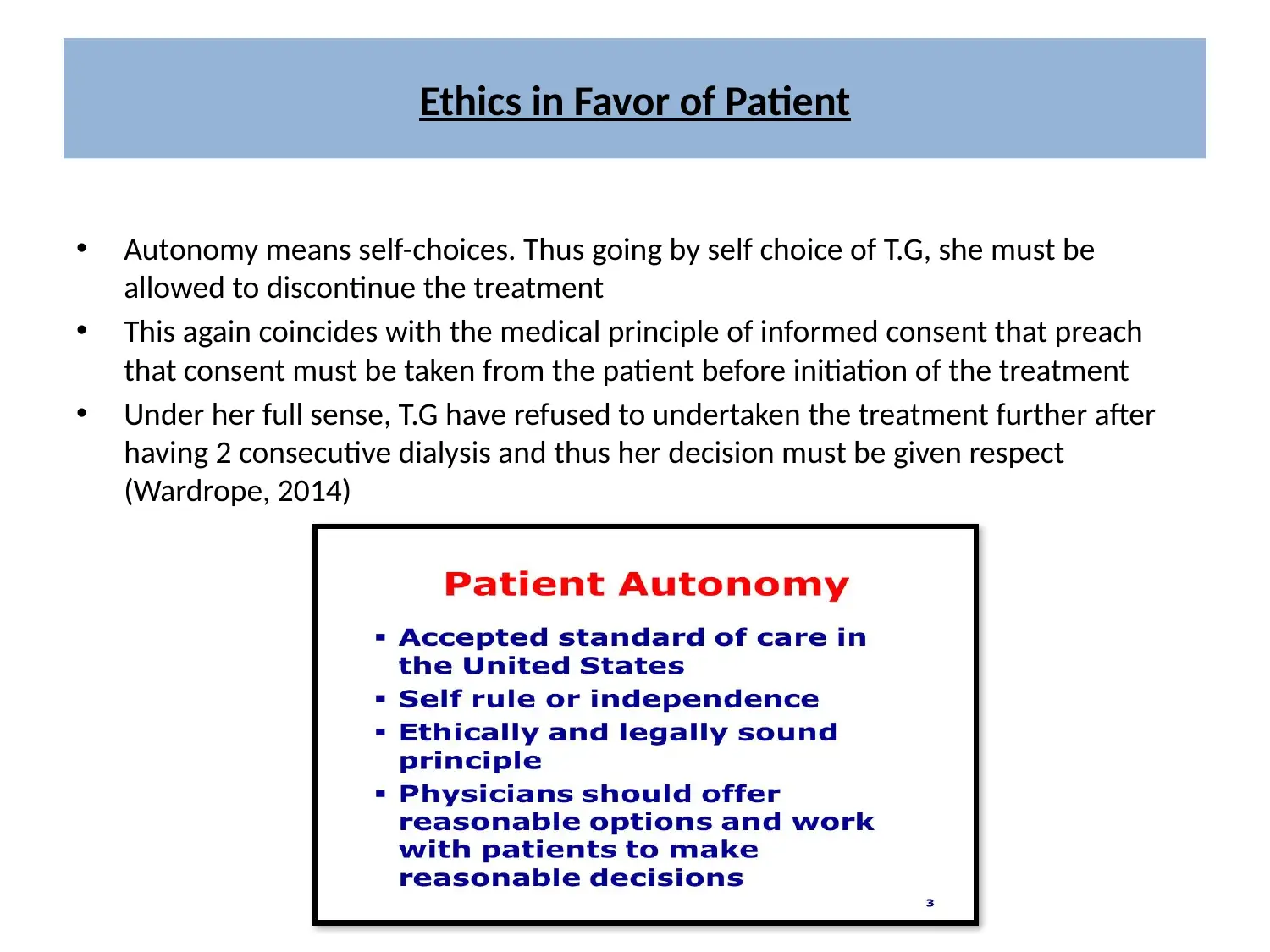
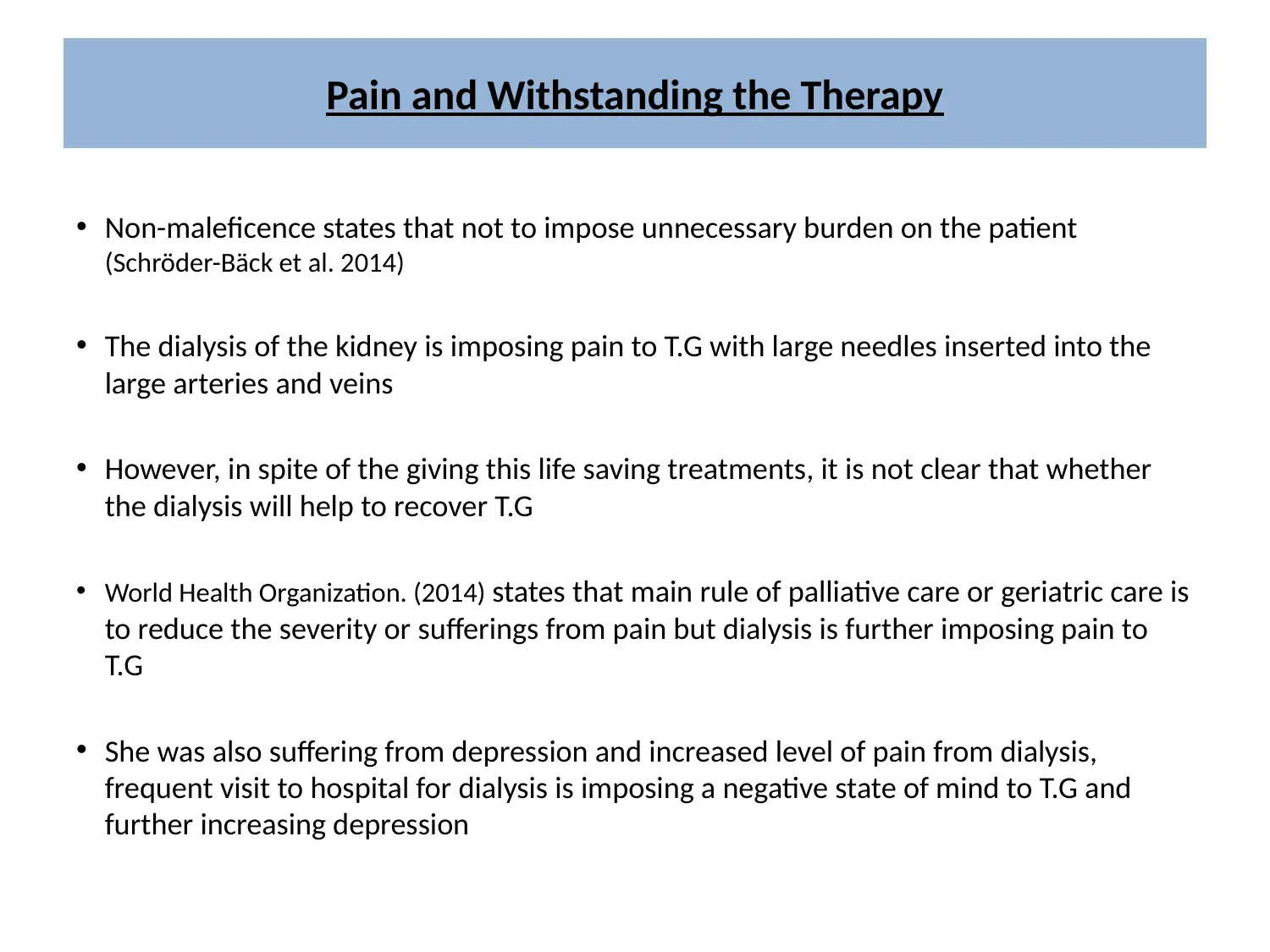
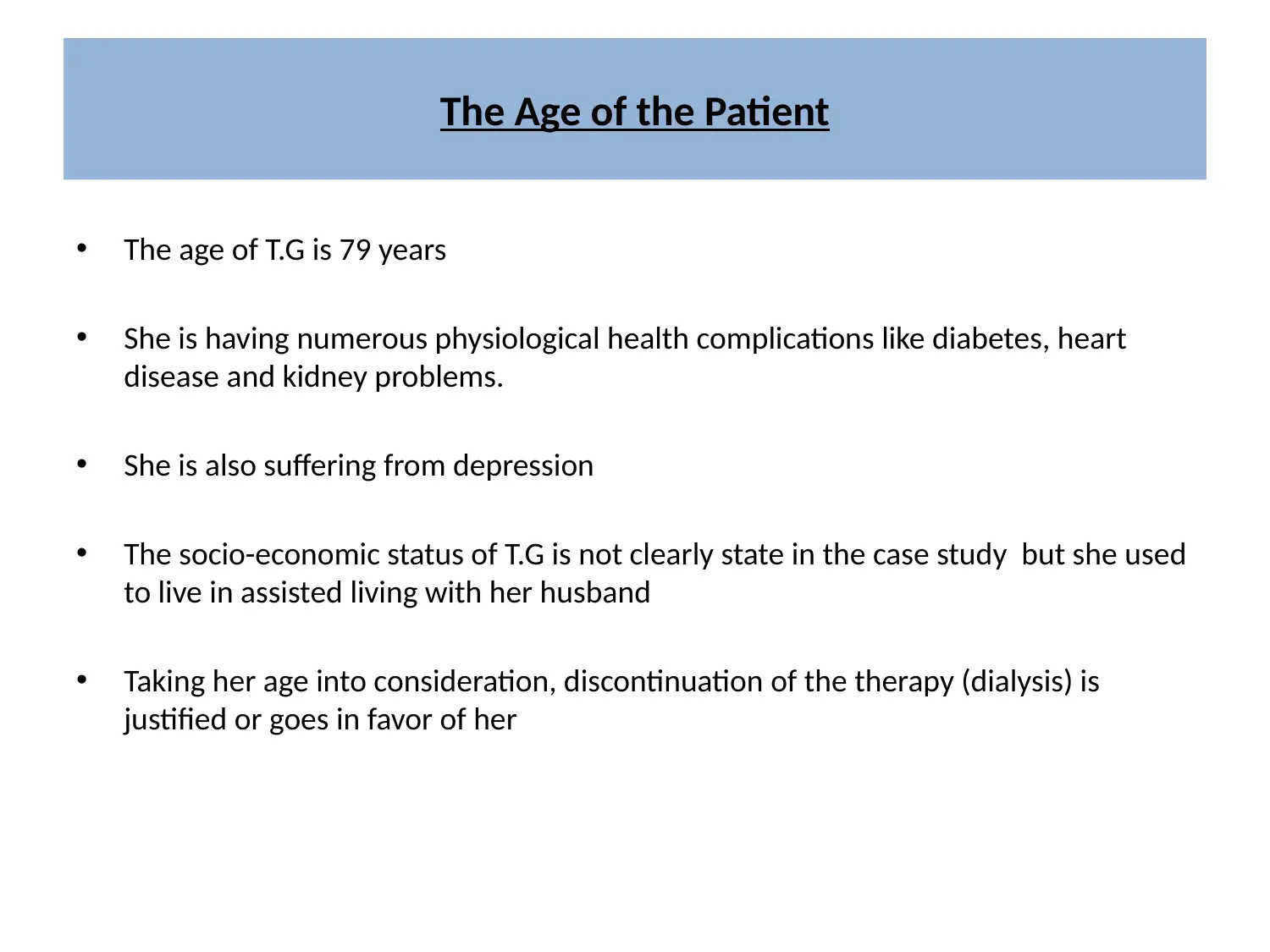
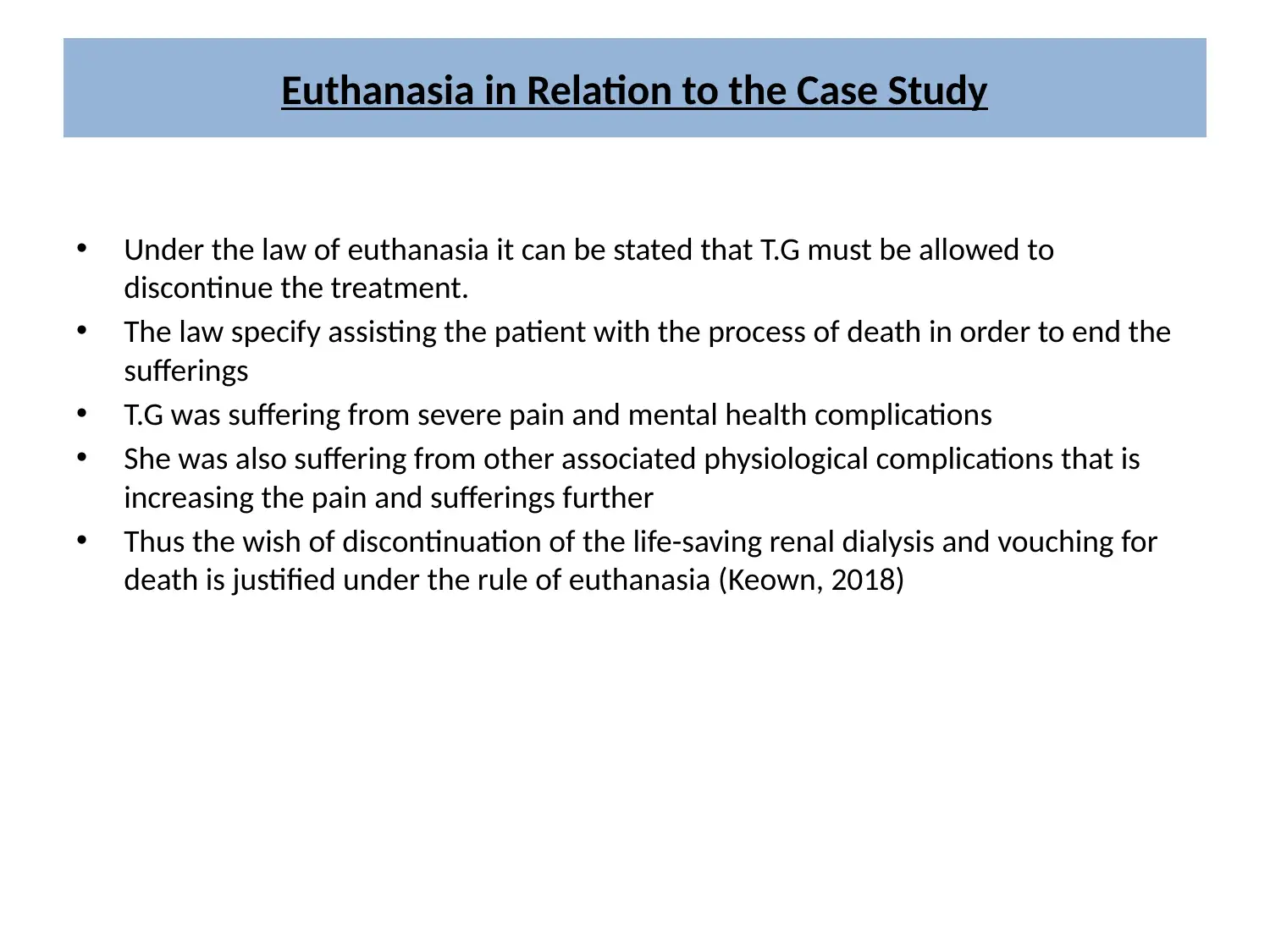
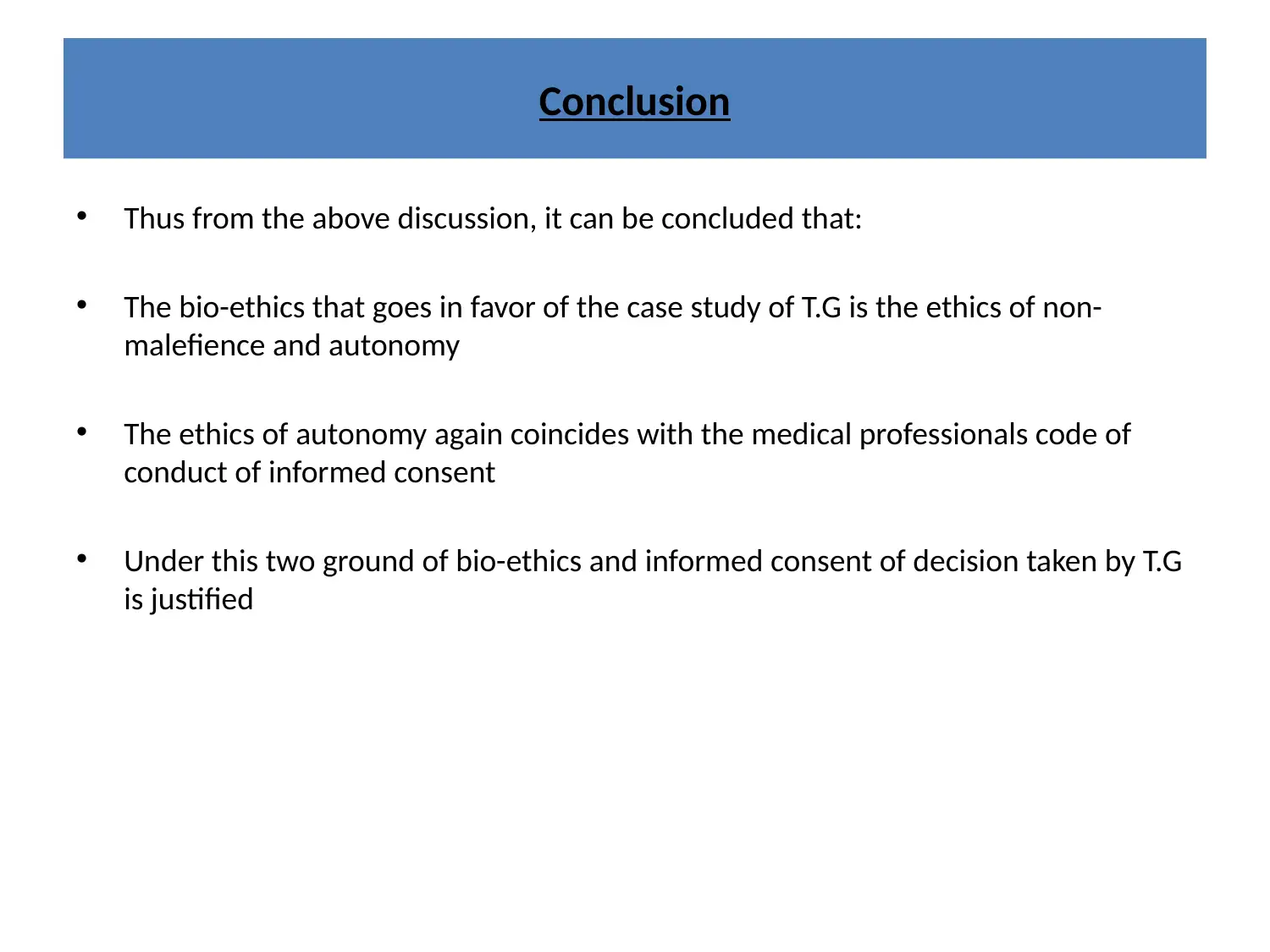
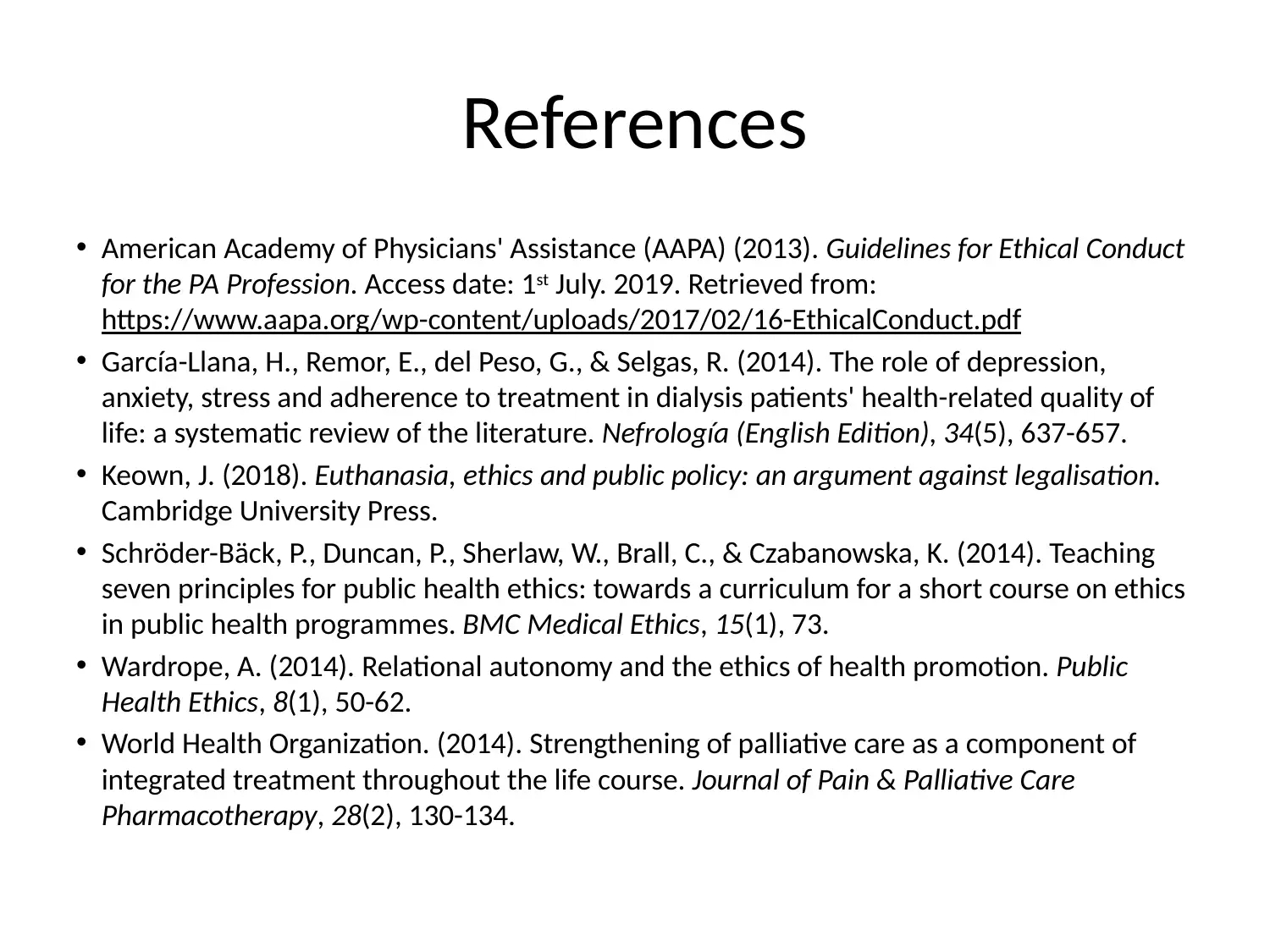







![[object Object]](/_next/static/media/star-bottom.7253800d.svg)